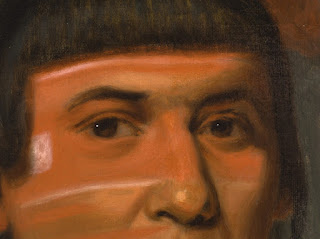For the first few weeks of each year, I walk through life with a deep sense of gratitude. Today I'm thankful for all my wonderful colleagues who also write historical western novels. It's a language that a good deal of the world doesn't speak.
Julia Ridgemont spoke of her latest work that takes place in Denver. My Native American books have unleashed fervor I didn't know existed in me -- especially during the sub-zero Nebraska winter. I'm convinced that overlooked details that paint stories are key for bringing the 19th century to life.
I enjoyed Caroline Clemmons' article about the Comanche scalping of that poor fellow: & it was exactly what I've unearthed. Comanche stripped and scalped settlers at the very least; and their movements were swift. Comanches were in charge of the southern plains (like Texas). Unlike the other tribes, they weren't driven from the east of the country because of crowding. They simply saw better prospects on the plains. They treated other tribes with the swift brutality that settlers received in order to gain control of the southern plains.
Cheri Kay Clifton wrote that sounds of nature and the wildlife can stir curiosity in readers. My readers seem to enjoy these Native books. Hopefully the details of every day tribal life, ceremonies and dances are part of it.I'm not sure how I'll convey the prosperity this Comanche chief shows; others have said the same: Comanches always had money, always had plenty to eat and share, wore good clothes, spoke several languages. But he'll make an excellent antagonist -- guns and all.
The man to the left is in Oklahoma. I've sat on rocks like that myself. I was surprised at the layers of fringed and finely decorated garments he wore. Like other plains tribes, Comanches often had several wives. (I wondered how many women sewed the fine clothes and moccasins he wore and if their needles were animal teeth, as was reported. Certainly they'd tanned the hides.)
However, Comanches weren't vindictive if their wives were stolen (tribal women were in demand,just like settler women), or if they ran off. They seldom tried to recover their errant wives, though occasionally they'd ask the new husband for payment. (Other plains tribes deformed the runaway wives, cutting off noses and ears.)
The site where I got this photo is Texas History. The photo belongs to the Rescue Texas History program. They offer a useful zoom and good downloads.
For example, the gun belt, holster and gun to his left, resting on the rock can be seen without a zoom. More difficult to see is the arrow on his right thigh. Besides being aggressive raiders, Comanche thought about the long term effects of trade. When they arrived on the plains, they'd immediately allied with the French fur trappers and traders, for metal objects like guns, ammunition, metal arrows and knives, but also for creating allies. The French traders were eventually driven from America, but they'd married Natives.
Native women putting up a tepee

Thank you all for your interest, and thanks to all my author colleagues for their inspiration and guidance.





No comments:
Post a Comment
Thank you for visiting Sweethearts of the West! We are very sad to require comment moderation now due to the actions of a few spam comments. Thank you for your patience.